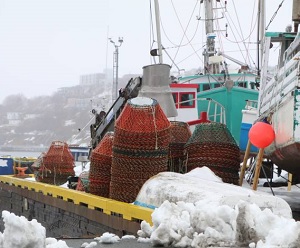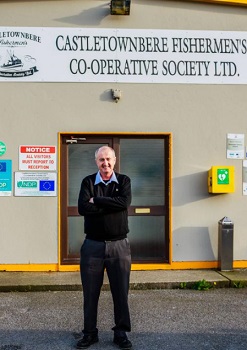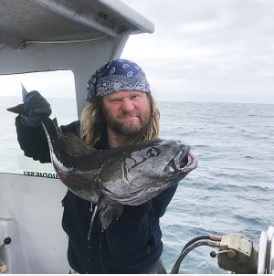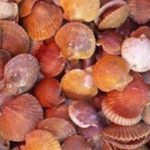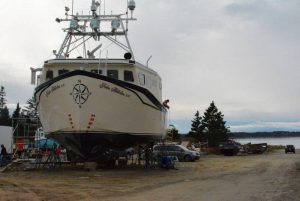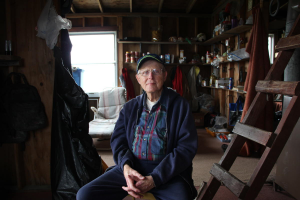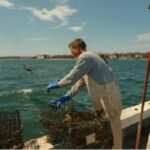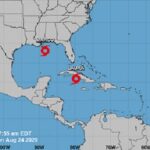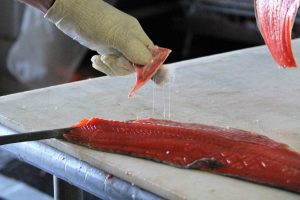Tag Archives: Coronavirus
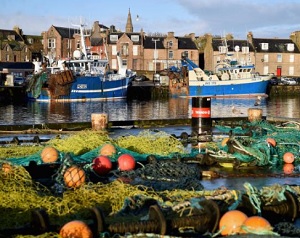
Want to start eating Scottish fish? Here are the best places to start
If Scotland really does have such fabulous seafood, why do ordinary citizens find it so hard to tap into this much eulogised catch? The problem has been that subsequent governments have fixated on international exports, not food for citizens. Farmed salmon has been the apple of their eye, even though its production has proved, to my mind, to be an environmental catastrophe for our west coast. Premium shellfish, brown crab to China, scallops to Italy, langoustines to Spain, has also been despatched abroad as soon as it was landed.,,, Enter coronavirus. Restaurant orders stopped overnight, export chains broke down. But instead of tying up boats and facing financial ruin, some determined fishermen, operating smaller boats closer to shore, have started exploring local markets,,, >click to read< 12:10
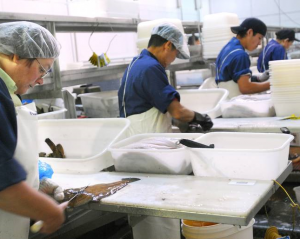
Port of Astoria: Twelve more workers test positive for Coronavirus at Bornstein Seafoods
Clatsop County reported Friday that 12 more workers at Bornstein Seafoods in Astoria have tested positive for the coronavirus, bringing the outbreak to 26. The county Public Health Department began testing workers at the seafood processor on May 2 after the company informed the county on May 1 that an employee had tested positive for the virus. Bornstein Seafoods has shut down two plants at the Port of Astoria in response to the outbreak and advised employees to self-isolate at home. The Bornstein Seafoods outbreak rippled across Astoria. >click to read< 09:25
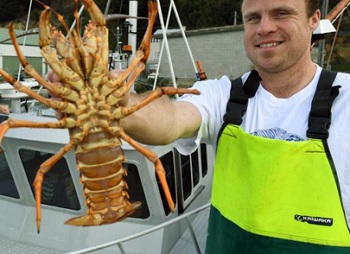
‘Not doomsday’: Commercial fishers say crayfish season looks promising
“A glimmer of light” is how Otago-based commercial fisherman Chris Cooper describes the state of the rock lobster industry — one of the first sectors to be crippled by the Covid-19 outbreak. The Chinese market closed to all rock lobster — or crayfish — exports in late January. China took 95% to 98% of all commercial crayfish landed in New Zealand. “We basically got a Dear John letter on January 24 and told there was no market. Now the market was starting to slowly open up again and Mr Cooper was pleased to be back in business, saying prices were “looking solid”. “My gut feeling is its going to be OK,maybe like last season — not a boomer, not a doomsday either. I’ve got a feeling its going to be a solid one,” >click to read< 17:49
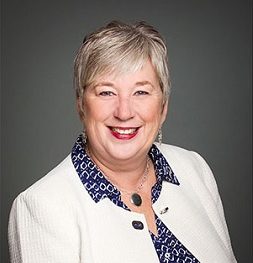
Coronavirus: Atlantic Canada’s fishing industry calls on feds for help
Crab and lobster fisheries throughout Atlantic Canada have faced delayed season openings due to fears about the coronavirus spreading in small communities and close working conditions. A significant drop in prices due to a collapse in retail and restaurant markets in the United States, Japan and China, major export markets for Canada’s seafood, overshadow the start of the season for many. Responding to a question during Tuesday’s virtual House of Commons meeting, Fisheries Minister Bernadette Jordan said support for the industry would be announced in the coming days, but by Thursday no additional details were available. >click to read< 09:09
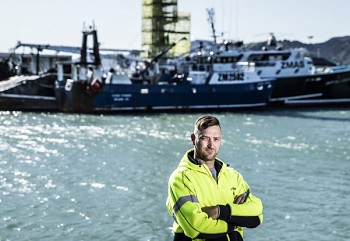
Nelson-based fishing crews adrift from Coronavirus during lockdown
The crew of Nelson-based fishing vessel Ocean Pioneer has spent the last nine weeks in a boat bubble, catching scampi on the Chatham Rise as the world was changed by Covid-19. Skipper Blair Alderson and his crew of five deckhands and a chief engineer departed Nelson two weeks’ prior to the March 26 level 4 lockdown.,, Damage to the boat’s television dome on the second day of the first trip restricted their news updates to emails from home and chatter with other boats in the vicinity. The crew were able to truly grasp the lockdown situation when they unloaded their first catch at Port Nelson in the midst of level 4 lockdown. >click to read< 07:52
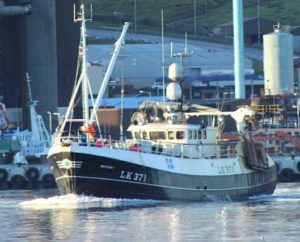
Shetland fishermen against Brexit transition period extension
In the light of the Covid-19 crisis and the deep recession forecast for 2020, Liberal Democrats and the SNP have been lobbying for an additional delay before the UK leaves the EU. But Simon Collins, the SFA’s executive officer, said that as far as he could see there was “not much appetite within the government to extend”, and fishing was a special case anyway. “Whatever decisions are being made for other parts of the economy, for which we can’t speak, as far as fishing is concerned our stance is absolutely clear: we have every intention to push the government to deliver, at least for fishing, that we are an independent coastal state by the end of the year. >click to read< 15:46

CARES Act : Maine’s cut of $300 million in federal seafood industry funding is nation’s fifth-highest.
Maine is in line to get $20 million to help its battered seafood industry weather the COVID-19 storm. The award, announced Thursday by U.S. Sen. Susan Collins, R-Maine, comes out of the $300 million in federal funding included in the CARES Act to help the U.S. fishing industry survive the economic losses associated with the coronavirus pandemic. Maine’s award was the fifth-highest out of 31 states. Commissioner Patrick Keliher said Thursday that he was only just learning about the award and would not be making any comments about distribution plans, , or priorities, until he received specific guidance from the NOAA. >click to read< 13:44

U.S. Department of Commerce Announces Availability of $1.5 Billion in CARES Act Funds to Aid Communities Impacted by the Coronavirus Pandemic
U.S. Secretary of Commerce Wilbur Ross today announced that the Department’s Economic Development Administration (EDA) is now accepting applications from eligible grantees for Coronavirus Aid, Relief, and Economic Security Act (CARES Act) supplemental funds (EDA CARES Act Recovery Assistance) intended to help communities prevent, prepare for, and respond to coronavirus.,, On March 27, 2020, President Donald J. Trump signed the $2 trillion CARES Act into law. The CARES Act provides EDA with $1.5 billion of which $1.467 billion is available for grant making. The remaining funds will be transferred to cover salaries and expenses and oversight activities. >click to read< 12:54
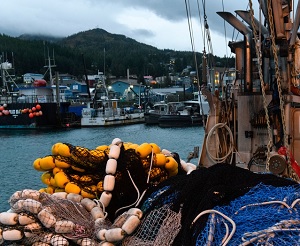
Seafood processing worker is Cordova’s first positive coronavirus case
Cordova’s first positive case of the new coronavirus is an Ocean Beauty Seafoods worker who had recently traveled to the Prince William Sound community from outside of Alaska, officials announced Wednesday. The worker was asymptomatic, but his case was caught by his company’s routine testing of employees, said Mark Palmer, the president of Ocean Beauty Seafoods, in a KLAM radio briefing Wednesday afternoon. The worker, who arrived in Alaska two weeks ago from the Lower 48, tested positive for COVID-19 on Tuesday night. “This person showed no signs of illness,” Palmer said. “But our testing procedure caught that person.” >click to read< 10:46
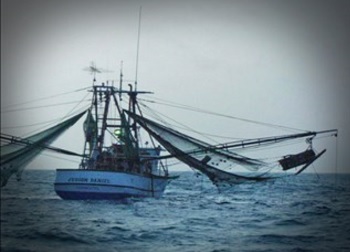
Coronavirus: Louisiana Shrimpers Uncertain of the Future
The seafood industry in Louisiana has seen highs and lows throughout the years.,, The ongoing competition from imported seafood and natural disasters have always been hurdles Captain AC Cooper and his family have had to navigate through, but now with the surplus of shrimp due to COVID-19 he’s unsure of the future. Acy said, “You just can’t get rid of the product that you normally get rid of because of the restaurants being closed and we went through lent but we still didn’t get rid of the excess. It’s hard to say that you don’t know what’s going to happen tomorrow and we don’t, and that’s very scary.” >click to read< 08:31
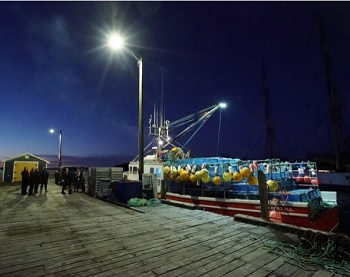
Federal Fisheries Minister Bernadette Jordan says financial aid for fishermen in Atlantic Canada is days away.
The pledge comes amid both economic and health concerns caused by the Coronavirus pandemic and $252 million in aid announced for Canadian farmers and food processors this week. The pandemic has already delayed the start of the lucrative spring lobster fishery in the Gulf of St. Lawrence as processors warn about slumping demand and their ability to safely process the glut that will arrive when catches land after the season opens May 15. “We know that [harvesters are] going to have some very challenging times this season and we will have more to say about that and what we will be able to do in the coming days,” Jordan said Tuesday during a virtual sitting of Parliament. >click to read< 11:15
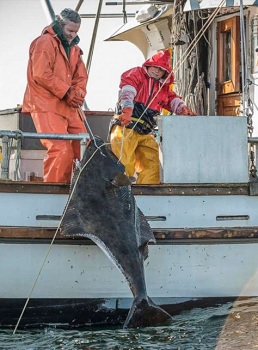
Fishermen, farmers suffering from food supply disruptions concerned for what’s to come
As the coronavirus has spread through the U.S. over the last two months, it has dealt a significant blow to the country’s food supply chain and driven the price of products down so much that those who source them aren’t sure if they’ll get a return on the time and money they’ve invested over the last year. Many are now concerned about what the rest of the year will look like and what it means for the foods they grow. For some fishermen, however, the risk of losing money is too high. California’s commercial salmon season began on Friday, but Mike Conroy, executive director of the Pacific Coast Federation of Fishermen’s Associations, says that with the markets “upended” and 75% of California salmon purchased by restaurants, many fishermen might not go through the trouble of fishing. >click to read< 09:16
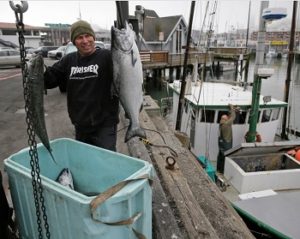
Salmon fishermen in Oregon to face brief closure that could help them later in the year
The commercial salmon season started just two weeks ago, but Tuesday is your last day to fish until the season opens up again May 26th. The executive director of the Oregon Salmon Commission says the season normally sees closures but at a different time. Because of the coronavirus pandemic, fishermen are catching Chinoock salmon but having a hard time selling them. That was behind the push to change the closure time from Cape Falcon south to the California border for this season. “Were basically closed for the markets in May,” said Nancy Fitzpatrick, the executive director of the Oregon Salmon Commission. “But it gave us more open days in July and August when we might typically be closed.” >click to read< 08:54
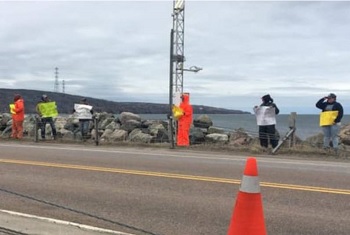
Cape Breton: Lobster fishermen protest delay to the season
About 75 lobster fishermen took to the Canso Causeway Monday, protesting the delay of the lobster season. The fishermen – who motorists going by said weren’t interfering with traffic — held signs on the Cape Breton side, while a few were beyond the bridge behind the guardrail. “The season hasn’t opened, that’s the main reason they are upset,” said Jordan MacDougall, president Inverness South Fisherman’s Association, adding May 1 is their usual season opening. “The Gulf area and P.E.I. have been delayed until May 15. Everyone’s upset about that.” >click to read< 20:12
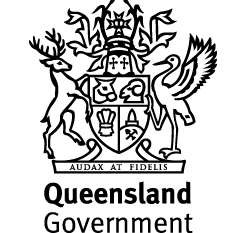
Queensland Government says it’s done enough for the domestic fishing fleet to weather the coronavirus storm
QSIA CEO Eric Perez described the state government’s response as a shameful position, saying commercial fishermen were only asking for a waiver for 12 months, not forever, and it would significantly assist a struggling industry. “The government knows what pressure we’re under,” he said. “Domestic markets have taken a massive hit that we didn’t see coming, because tourists aren’t going to restaurants to eat.” He said the industry wasn’t seeking a handout, rather relief from regulatory fees. “It appears the state government is hesitant to part with $5.1-$5.2 million to help an industry that generates over $350 million to the state economy.” >click to read< 10:07
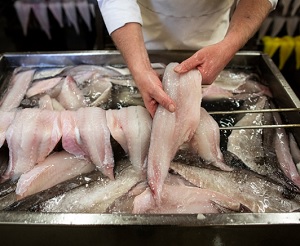
Coronavirus: Commercial fishing industry on the ropes as pandemic-era shoppers avoid seafood
Fisherman Marty Scanlon has not returned to his Long Island home since leaving for North Carolina at the beginning of the coronavirus pandemic in New York. Scanlon, a longliner captain from Hauppauge left for North Carolina in early March — roughly the same time the first case of Covid-19 emerged in Manhattan. In the weeks that followed, Gov. Andrew Cuomo ordered most businesses to close, effective March 22, casting a pall over New York City restaurants in a once-bustling culinary capital. Business for Scanlon has been brutal ever since. “We basically don’t have the money to go home,” Scanlon said, over the phone. “We can’t go home til we pay our bills.” >click to read< 08:32
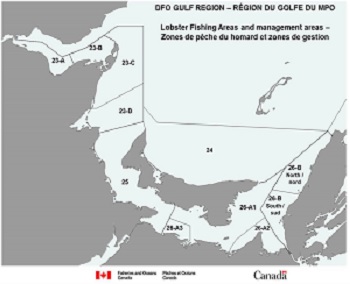
Some P.E.I. fishermen feeling left out of lobster market
This year due to considerations around the coronavirus (COVID-19 strain) pandemic, P.E.I. lobster fishers will be setting traps on May 15 instead. Beach Point fisher Brayden Handrahan says he was ready to fish April 30 as usual, and he says he’s not alone. “That’s when everybody gets the most lobster, in the first two weeks, and that’s why everybody wants to go,” he said. Federal Fisheries Minister Bernadette Jordan said her department chose May 15 after fishers in licensed fishing areas (LFAs) 24 and 26a voted on the date. Ian MacPherson, executive director of the P.E.I. Fishermen’s Association, who co-ordinated the vote, says it was close, but the majority asked for a delay. By the time the vote was underway, many felt it was too late for the season to start on time, said MacPherson. As the decision date approached, Jordan added a “new wrinkle” by including processors into her considerations, he said. >click to read< 09:50
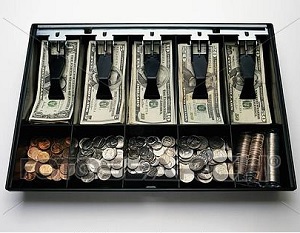
Rhode Island: New Temp License Allows Commercial Fishermen to Sell Seafood Directly to Consumers, Retailers
“There is a growing demand for local seafood during this critical time, and we’re fortunate that our commercial harvesters are able to meet the needs of residents with the abundant seafood resources available off our coast,” said DEM Director Janet Coit. “Rhode Islanders can take pride in knowing that when they purchase fresh local seafood, at local retailers or right off the boat from harvesters, they are helping to keep a vital part of our economy – our commercial fishing and seafood industry – up and running.” The new direct-sale opportunity supports the development of new, local supply chains for RI seafood. As an emergency regulation, the measure will remain in effect for up to 120 days. >click to read< 08:46

A fisheries protest in spring? That’s normal, but this one’s quite different
Earlier this week, there was an uproar in South Brook, Triton and Port aux Basques about out-of-province crab needing to be processed. The details this time were quite different from prior years — this would be the first time a pandemic prompted a protest — but the scenario may have seemed familiar. Over the years, we’ve seen windows get smashed at DFO headquarters in St. John’s, a hunger strike outside the same building, gear getting torched in Port au Choix, an occupation at fisheries offices in Corner Brook, a blockade in front of Confederation Building … there’s been a lot. >click to read< 09:16
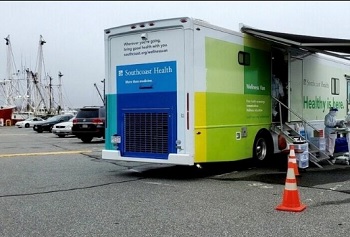
Coronavirus: Port of New Bedford, Southcoast Health to pilot COVID-19 testing for fishing industry
Using the Southcoast Mobile Health Van, testing began Friday afternoon for fishing crews whose vessels are slated to leave the port after their results are available. The testing Friday is a trial run to prepare for expanded testing capability by Southcoast Health as more COVID-19 testing becomes available. Targeted testing for essential and high-risk employees will be key to continuing to plan for reopening of the local economy and adjusting social distancing in the workplace. Medical interpreters will be on site, and literature in multiple languages will be available at the mobile testing site. This site will pilot best practices for mobile testing as more tests become available to healthcare providers, preparing Southcoast Health and the City of New Bedford for expanded testing capabilities, including for targeted essential workers. >click to read< 16:42

The Fishermen’s Mission vow to help fishermen during coronavirus pandemic
The Fishermen’s Mission was established in 1881 to help fishermen and their families, and continues to do so with the pandemic hitting the industry hard. Tim Jenkins, port officer in East Anglia, said: “We can help you if you feel like you are struggling with money worries or feeling isolated and alone. “We are still here to help you. If you are a fisherman on a UK boat, a retired fisherman, or a member of a fisherman’s family, please do not hesitate to contact us. “These are very difficult times and the support we can give you may make all the difference. >click to read< 09:50
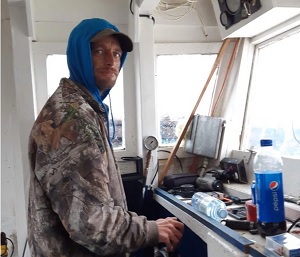
Coronavirus: ‘Like a funeral’: Fisherman laments tanking prices in once-lucrative lobster fishery
The Department of Fisheries and Oceans has set opening dates for the lobster fishery from May 1 to May 6, depending on the area of the province where harvesters live. According DFO, there are 2249 lobster license holders but not all are active. Preston Grandy, 40, has been catching lobsters since he was just a boy. On Saturday, he’ll leave his wharf in Garnish on the Burin Peninsula and set his pots, a task he’d normally take on with pure enthusiasm. “Usually setting day for me for lobsters, it’s just like Christmas morning for a kid. But this year it’s almost like a funeral. I’ve got no desire to even go down to the wharf,” >click to read< 08:58
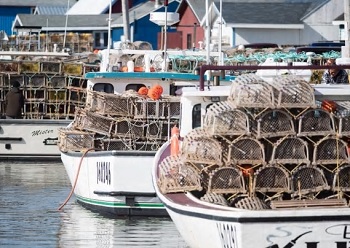
Canadian Independent Fish Harvesters Federation calling on Ottawa for Coronavirus aid
The Canadian Independent Fish Harvesters Federation says the federal government needs to do more to help people who work on the water sooner rather than later, amid the COVID-19 pandemic. The federation represents fishing groups from across the country, including the P.E.I. Fishermen’s Association. “The time for some assistance that we heard the minister speak about is now,” said Melanie Sonnenberg, president of the federation. Earlier this week, federal Minister of Fisheries Bernadette Jordan announced Ottawa’s plan to help processors during the pandemic and said the federal government is working on help for fishermen. >click to read< 14:53
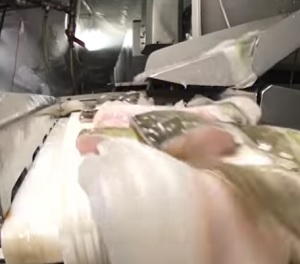
America’s Food Distribution Chain Is Essential
The disruptions in the food supply chains can be attributed to two primary causes – outbreaks of Coronavirus at some meat-processing and other food-packaging plants have led to closures across the country, and meanwhile, the sweeping closures of restaurants by state and local governments have disrupted the demand for a wide variety of food items. Over the past few days, fifteen percent of the pork processors have closed their doors. America’s fish supply provides a powerful example of what happens when states unilaterally shutter dine-in services at restaurants. The fishing industry knows something the central planners seem not to have known: Americans have a strong preference for eating fish in restaurants, rather than cooking it. >click to read<
Meat processing plants across the US are closing due to the pandemic. Will consumers feel the impact? – video, >click to read< 11:56
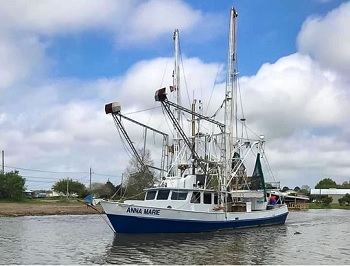
‘Another punch in the gut’: Gulf Coast shrimpers navigate the coronavirus crisis
Shrimping is a hard business. Gulf Coast shrimpers, who bring in three quarters of the nation’s catch, have been battered with waves of bad luck. Hurricanes. A flood of cheap imports. The BP Deepwater Horizon oil spill in 2010. Fresh water diversions that kill seafood. And now the coronavirus. Restaurants buy 80% of both imported and domestic shrimp, according to the Southern Shrimp Alliance. With restaurants closed or offering only takeout, no one is buying much shrimp. Next month would typically launch the peak of shrimp season as Gulf states begin their annual opening of nearshore waters to shrimping. >click to read< 07:45
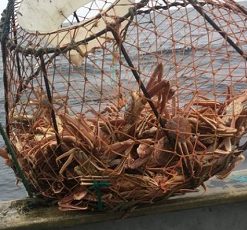
FFAW, processors remain at odds on opening Newfoundland and Labrador crab season
It remains to be seen whether harvesters in the province will eventually start fishing for crab and offloading it at plants for processing. According to the Fish, Food and Allied Workers (FFAW-Unifor), two vessels from outside the province were turned away in Port Aux Basques and denied the opportunity to offload crab as of Monday morning, and three transport trucks carrying crab harvested outside the province were being blocked from making deliveries to fish plants, two in South Brook and one at Goobies. “The fishery was postponed three times on health and safety issues,” Pretty said. “During that time, the bargaining for the price of crab should have progressed, but instead of progressing,,, >click to read< 19:46
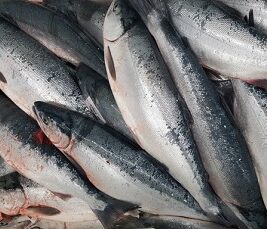
With coronavirus pandemic procedures in place, Copper River salmon season ready to open
Hundreds of vessels and workers flood into Prince William Sound each May for a chance to harvest the first fresh wild king salmon of the year, followed by the famous Copper River sockeye and the broader Prince William Sound pink salmon fisheries. However, with limited road access and health care facilities, city and state officials have been coordinating with the fleet and stakeholders about how to safely allow in deckhands, captains, and processing workers from Outside without inviting the pandemic to Cordova as well. “Fishermen are very concerned and have been concerned since day one,” said Francis Leach, the executive director of the United Fishermen of Alaska. “Now that procedures have been put in place, there are a lot of questions. It’s always a learning curve. Folks are really going to have to pay attention to (the mandate).” >click to read< 14:36






